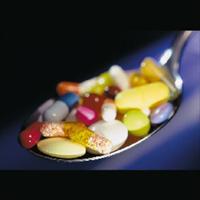GLOBAL: Positive people on ARVs not sexually infectious say experts

Swiss HIV experts have said that HIV-positive individuals who follow their antiretroviral (ARV) treatment consistently and who do not have any sexually transmitted infections (STIs), cannot infect their sexual partners.
Four of Switzerland's leading HIV experts made the controversial statement in this week's Bulletin of Swiss Medicine on behalf of the Swiss Federal Commission for HIV/AIDS after reviewing studies on the rates of transmission among sero-discordant couples, in which one partner is HIV positive and the other is negative.
The experts acknowledged that they could not completely rule out the possibility of transmission while the HIV-positive partner was on ARV treatment, but described the risk as "negligibly small", as long as the viral load (quantity of HI virus in the system) had remained undetectable for at least six months and neither partner had any STIs.
They emphasised that missing even a few days of ARV drugs or contracting an STI could rapidly increase viral load, causing the person to become sexually infectious.
The authors cited a Spanish study of 393 heterosexual sero-discordant couples recruited over a 12-year period, in which not a single case of HIV transmission occurred in couples where the HIV-positive partner was taking ARV therapy. This was compared to an 8.6 percent infection rate among the partners of HIV-positive individuals not on treatment.
Comparing their assertion to statements made during the 1980s that HIV could not be transmitted through kissing, the authors noted that while such statements had not been proven, "after 20 years' experience its accuracy appears highly plausible."
In countries with laws that can be used to criminalise HIV transmission, including Switzerland, the statement recommends that courts take into account whether or not the HIV-positive person is on ARV treatment and has an STI. The statement also has major implications for HIV prevention and HIV-positive people in sero-discordant relationships.
Luckyboy Mkhondwane, an HIV-positive activist in the South African AIDS lobby group, Treatment Action Campaign (TAC), told IRIN/PlusNews that despite being on ARV treatment and having a very low viral load, he would not take the risk of having unprotected sex with his HIV-negative partner. "I don't think I would be able to live with the guilt if I infected someone," he said.
Johanna Ncala, also with the TAC, believed the biggest impact of the statement could be on the reproductive rights of HIV-positive people. "People now are living their lives and they want to have babies," said Ncala, who had a HIV-negative child two years ago, even though she and the father are both HIV-infected.
"But it's scary for people, so we need to find a way how we're going to communicate these things, much as we have a problem how to communicate the male circumcision issue," she said.
Many health experts have expressed concern that recent findings on the HIV protective benefits of male circumcision could lead circumcised men to overestimate the degree to which they are protected and dispense with safer sex practices, a tendency known as the 'disinhibition effect'.
A similar disinhibition effect associated with ARV treatment has already been observed among HIV-positive men who have sex with men in the developed world. While death rates among this group have decreased since ARVs became available in the mid-1990s, the incidence of STIs has increased, suggesting that the men are engaging in riskier sexual behaviours.
"It's a brave statement, and they make a strong case," commented Dr Francois Venter, president of the Southern African HIV Clinicians Society, which represents 12,500 members working in the HIV/AIDS field. "The worry is that hard-fought prevention messaging may be undermined. We'll have to counsel patients very carefully."
In its statement, the Swiss Federal Commission for HIV/AIDS recommended no change in the country's current prevention strategies, except with regard to HIV-positive people in stable relationships.
"People who are not in a stable relationship must protect themselves," the statement read, "as they would not be able to verify whether their partner is positive or on efficient antiretroviral therapy."
 Back and Next - Back and Next
Back and Next - Back and Next See Also - See Also
See Also - See Also